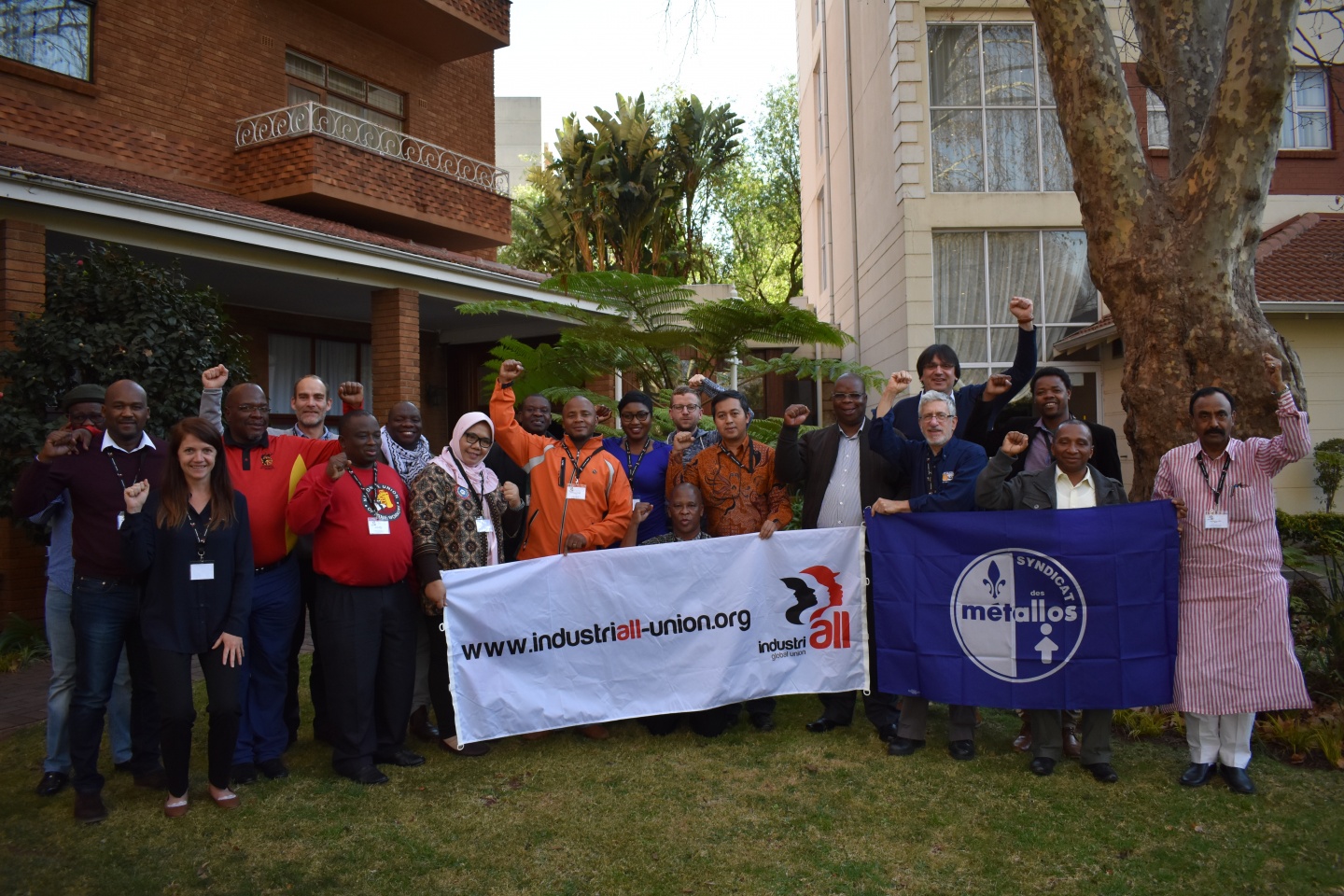27 July, 2017IndustriALL Global Union affiliates from Australia, Guinea, India, Indonesia, Madagascar, Namibia, South Africa, Canada and the United States, meeting as the Rio Tinto Global Network in Johannesburg, South Africa from 19-21 July, welcomed a commitment from Rio Tinto to improve its relations with trade unions.
In a letter sent to the unions with membership at Rio Tinto operations on 11 April 2017, the company expressed a commitment to a series of fundamental principles and structures for its labour relations. This message was confirmed by Rio Tinto’s head of employee relations, Rick Willmott, who was present at the meeting. He said that the company was motivated to improve perceptions on labour relations. The union network adopted a resolution recognizing this.
The commitment is seen as highly significant. Rio Tinto is the second biggest mining group in the world, and its practices are precedent setting. Industrial relations in the mining industry are frequently strained, and IndustriALL has campaigned for a number of years for social dialogue.
Kemal Özkan, IndustriALL assistant general secretary said:
“IndustriALL welcomes the commitment, and we will invest in developing and monitoring this new relationship.
“Rio Tinto has made a policy decision to change the culture of the company. This is a groundbreaking development, and it is long overdue for this global giant to recognize the role and importance of trade unions. “
The joint steering committee, made up of representative of Rio Tinto and union representatives from different continents, will meet twice a year to develop the relationship and monitor compliance with the policy. Regional platforms have also been established in North America, Sub Saharan Africa and Asia, and country reports will be systematically collected.
IndustriALL mining director Glen Mpufane said:
“We are very pleased with the results of our global campaign, however we remain vigilant to ensure the commitments we have received are put into place."
A major focus of the new relationship will on contracting and precarious work, and efforts will be made to bring contractors into collective bargaining agreements.
The network discussed the appalling working conditions of Malagasy contract workers at Rio Tinto. IndustriALL will facilitate a global fact-finding mission to Madagascar. Rio Tinto will be asked to be part of the mission.
The meeting adopted an action plan laying out the next steps in implementing the new relationship with Rio Tinto, and growing and strengthening the network.
Health and safety, especially occupational respiratory diseases, will be part of the network’s activities. Campaigns to highlight the devastating consequence of non-compliance by the mining industry, like the CFMEU campaign on the re-emergence of black lung in Australian coalmines, will be carried out.
There will be demands to co-design and participate in inspections and monitoring protocols. The network will contest the undue influence of the International Employers Organisation on the ILO concerning the uncritical acceptance of the ISO standards.
The network will focus on gender equity across Rio Tinto’s global operations to address discrimination against women, and encourage the setting up of constitutional women’s structures in unions.
The network will build unity and collaboration within national trade unions and facilitate solidarity within and across borders at Rio Tinto operations, and encourage youth recruitment and participation within the global network.
A resolution was passed condemning the dismissal of more than 4,000 workers in Indonesia by PT Freeport, the local subsidiary of Freeport-McMoRan, in which Rio Tinto has a 40 per cent stake. A high-level solidarity mission of IndustriALL affiliates will travel to Indonesia in early August.
In conclusion, Andrew Vickers, co-chair of IndustriALL Mining Section and chair of Rio Tinto Global Union Network said:
“I am very pleased the Rio Tinto has made the commitment to change its stance on industrial relations. We hope this sets a precedent in the mining industry, and that other players, such as Glencore, recognize the legitimacy of trade unions.
“We will continue to share information throughout the network, to report non-compliance with the confirmed principles and agreed processes, and to re-energize the global campaign at short notice if required.”





